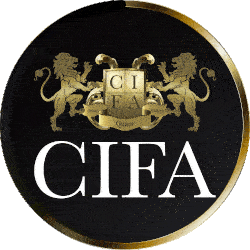


Investment advisory is a complex world that can be difficult to navigate without the right knowledge, skills, and training. One of the ways to gain this expertise is by obtaining an Investment Advisor Certificate. This Certification can serve as an important foundation for individuals looking to start a career in investment advisory or enhance their existing skills.
What is an Investment Advisor?
An investment advisor is a professional who offers advice on securities to clients, which can include individual investors, businesses, or financial institutions. They help their clients set and achieve financial goals by providing insights on portfolio management, investment strategy, and risk assessment. They can also recommend specific investment products and services.
Role of an Investment Advisor
The role of an investment advisor involves the following:
Developing tailored investment strategies to meet clients' financial objectives.
Researching and recommending suitable investments.
Monitoring and managing investment portfolios.
Assisting with financial planning, such as retirement or estate planning.
Providing clients with informed advice about market trends, potential risks, and investment opportunities.
Complying with industry regulations and maintaining professional ethical standards.
Investment Advisor Certificate
An Investment Advisor Certificate is a professional credential that signifies that the holder has the necessary knowledge and skills to offer investment advice. There are several organisations globally that offer such certifications. In the United States, for example, one can become a Certified Financial Planner (CFP) or Chartered Financial Analyst (CFA). These designations often require passing rigorous exams and meeting work experience criteria.
Benefits of an Investment Advisor Certificate
Expertise: The certificate provides extensive knowledge about investment strategies, financial planning, and regulations, which are crucial in advising clients effectively.
Credibility: A certification can enhance a professional's credibility, showcasing their commitment to learning and maintaining high standards of practice.
Career Growth: Having an Investment Advisor Certificate can boost one's career prospects. It can help differentiate a candidate in a competitive job market and potentially lead to more advanced roles or higher salaries.
Continuing Education: The financial world is constantly evolving. These programmes often require or encourage ongoing learning, helping advisors stay updated on the latest trends, techniques, and regulatory changes.
Path to becoming a Certified Investment Advisor
While the specifics can vary based on the country and the specific certification, a general path often involves:
Obtaining a relevant bachelor's degree, such as finance, economics, or business.
Gaining relevant work experience in the financial industry.
Studying for and passing the required examinations.
Committing to a code of ethics and standards of professional conduct.
Engaging in continuing education to keep skills and knowledge current.
Continuing Professional Development
Continuing Professional Development (CPD) is key in the world of investment advisory, as this is an industry that is always evolving due to changing market conditions, advancements in technology, and regulatory changes. By pursuing CPD opportunities, investment advisors can ensure they stay up-to-date and continue to provide the best possible advice to their clients.
The world of investment advisory can be rewarding but also challenging. Obtaining an Investment Advisor Certificate can be a valuable step for those interested in this field, providing the necessary expertise and credibility to succeed. However, this is just one component of a broader commitment to ongoing learning and professional development.
0 comments